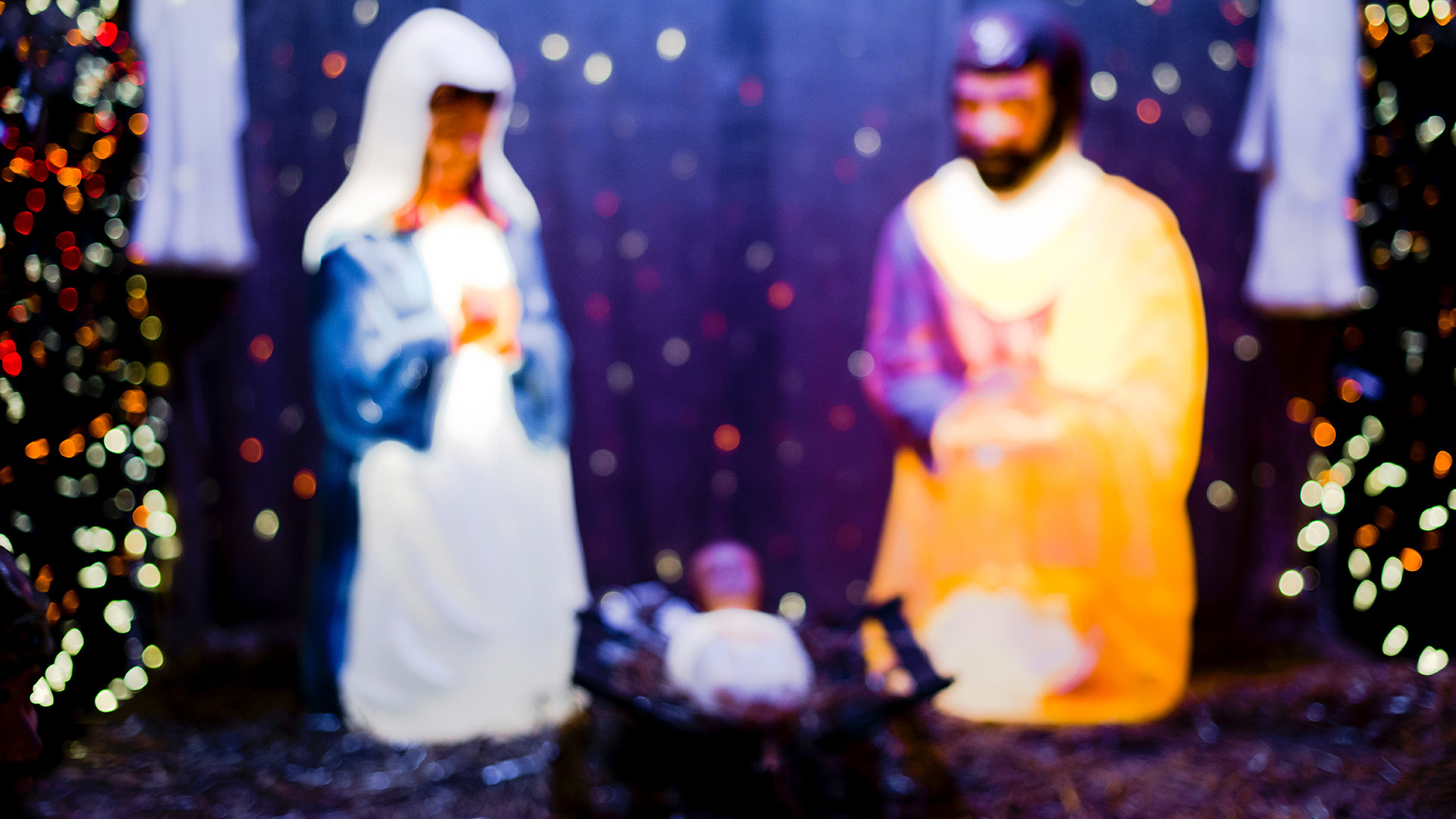In this season of Advent, we have been wrestling with the intrusive nature of the in-breaking of God—the idea that incarnation is not a clean, predictable movement. Here, Dr. Jo-Ann Badley, Dean of Theology at Ambrose University and a former professor of New Testament and Hermeneutics at The Seattle School, reflects on the angel’s opening words to Mary, “Do not be afraid,” and on how those words invite us to join Mary in watching for the surprising movement of God and consenting to the unexpected ways God brings light and life into the world.
Most of us are creatures of habit. When we come into a classroom or a church service, we sit in the same place. Most of us have a morning routine that we follow, at least during the work-week. Life is simply more manageable if there are patterns.
We should therefore expect that some of the first words the angel says to Mary will be “Do not be afraid.” An angel’s appearance is surprising, out of the ordinary, not at all routine. Luke tells us that Mary was much perplexed by the angel Gabriel’s greeting, and I can easily believe that; “much perplexed” is probably an understatement. (Luke 1:30)
Often the phrase “do not be afraid” is spoken by a messenger from God when the people of God are in a difficult spot and a word comes to them that God is with them. This is the case when the LORD appears to Hagar, the Egyptian slave girl who had been cast into the desert with her son by a jealous Sarah. She thinks she and her child will die for lack of water. But the angel of God calls to her, “Do not be afraid; for God has heard the voice of the boy.” (Genesis 21:17) Jacob, the father of the twelve tribes of Israel, hears these words in a vision when he is departing from the land given to his grandfather. He is going to Egypt because there is no food in the land of promise. (Genesis 46:3) These are also God’s reassuring words to Jeremiah and Ezekiel as the prophets anticipate push-back from a people who will not want to hear their words of judgement. (Jeremiah 1:8 and Ezekiel 2:6)
But occasionally the phrase comes when God announces that something out of the ordinary is about to happen. An angel of the LORD appears out of the blue (pardon the pun) and announces the unusual: “Do not be afraid, God is about to do something entirely unexpected.” “Do not be afraid, Abram, old man with no child, you will have so many descendants that you will not be able to count them.” (Genesis. 15:1) “Do not be afraid, my chosen people exiled to a foreign land, I will pour out my spirit on your descendants, and my blessing on your offspring.” (Isaiah 44:1-8) “Do not be afraid, virgin, you will bear a son whose kingdom will not end.” (Luke 1:30-33)
If we listen, scripture shapes our image of God. By these four words, we are taught to believe that God will come to us, to save us, when we are in a difficult spot. We need not fear because God cares for us. Our God is this sort of God—a God who saves. But we are also taught to understand that our salvation may not come in a way that we were anticipating. Our God is also this sort of God—a God of surprising actions.
“If we listen, scripture shapes our image of God. By these four words, we are taught to believe that God will come to us, to save us, when we are in a difficult spot.”
And these two truths help us live with hope. With Hagar we hope for water in the desert. With Jacob we hope for a future in foreign territory. With Jeremiah and Ezekiel, we hope for defense when we stand for the truth God has made known to us. But we also need to hope remembering that God’s purposes might be fulfilled in an unexpected way. Old men are given descendants. Displaced people are given God’s Spirit. A virgin bears a child who saves the world. In this way, listening to the words of scripture also shapes us so that we are conformed to the image of God’s Son. We learn to hope for life, for life is also the desire of God, and we learn to be open to the appearance of life in surprising ways, sometimes with great personal cost. Who expected that a death on a Roman cross would enable life for the world?
2018 was a hard year to be a Christian. People who claim Christian faith act for power rather than life. There are millions of people all over the world displaced by wars, famine, and natural disasters who have nowhere to go. Nations think that they have exhausted their capacity for hospitality to strangers. There is a heightened rhetoric of hate and intolerance. Long-standing, buried prejudices are openly displayed. Destruction because of the damage we have inflicted on the creation is obvious everywhere. Human life is unmanageable, out of control. We join Isaiah in lament and prayer: We have long been like those whom you do not rule, like those not called by your name. O that you would tear open the heavens and come down. (Isaiah 63:19-64:1) We can only hope for a different world in 2019—hope for the coming down of the LORD.
“We learn to hope for life, for life is also the desire of God, and we learn to be open to the appearance of life in surprising ways, sometimes with great personal cost.”
Advent is a time of hope. It is a time when we remind ourselves of God’s eternal commitment to life and we open ourselves to new visions of the ways of God. It is a time when we are called to prepare to participate in God’s work, to make watching for God part of our habit.
But God does not always work in predictable ways. God will be God. Advent preparation also includes adjusting our expectations of how God will come because we remember the surprising way in which God did come: to a virgin, as a child. Advent is not for the faint of heart.
The call of Advent is to respond to God as Mary did: “Here I am, a virgin and servant of the Lord. I can bear this child, let me be participate in your purposes, according to your word.” It is to hear the voice of the angel, “Do not fear.”


